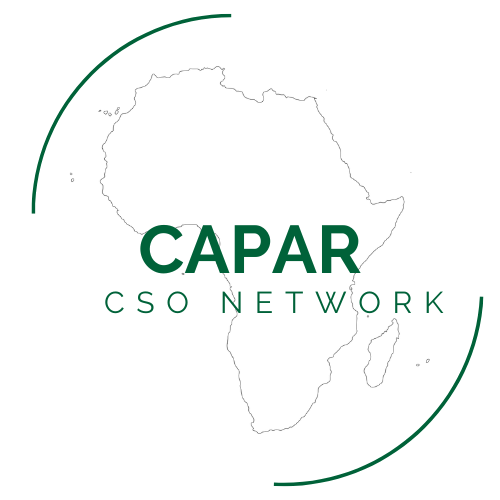11th July 2025
This year’s African Anti-Corruption Day will commemorate the adoption of the African Union Convention on Preventing and Combating Corruption (AUCPCC), with the theme of “Promoting Human Dignity in the Fight Against Corruption.”
Corruption is not a victimless crime. Its costs go far beyond the money and property stolen. Corruption greatly undermines human dignity by depriving citizens of access to basic rights and services, including healthcare, education, justice, and economic opportunities. International and regional frameworks exist to combat corruption, and within them lies the potential for restorative justice by reshaping these processes to centre on human beings, particularly victims of corruption.
We as civil society believe that asset recovery is a key tool that can contribute to restoring human dignity, particularly to compensate and engage victims of corruption and other crimes, and to benefit citizens of countries harmed by the consequences of corruption.
International and regional law have started recognising this. Article 57(3)(c) of UNCAC states that countries should “give priority consideration to returning confiscated property to the requesting State Party, returning such property to its prior legitimate owners or compensating the victims of the crime.” Further, the GFAR (Global Forum on Asset Recovery) principle (5) states, “where possible, and without prejudice to identified victims, stolen assets recovered from corrupt officials should benefit the people of the nations harmed by the underlying corrupt conduct.”
In the African framework, CAPAR asks member states to adopt policies on the use of returned assets for sustainable development and other social investment projects (art. 4.3.2) and mentions that states are “entitled to use assets for the common good of citizens” (art. 4.3.19).
International human rights law – such as the OHCHR Recommended Principles on Human Rights and Asset Recovery, particularly its Principle 8 – can offer legal tools to ensure that victims are taken into consideration and participate in corruption proceedings, seek remedies, and monitor asset recovery efforts. Greater alignment and dialogue between anti-corruption and human rights frameworks can strengthen victim participation and promote accountability in asset recovery processes.
Restoring human dignity through victim engagement can take place in multiple ways. Foremost, by making victims and citizens active participants in anti-corruption and asset recovery procedures, from contributing to investigations to collective decision-making on the disposal of returned assets. Clear mechanisms to provide timely information, offer avenues to present evidence, and enable victims to shape settlement outcomes, as well as consultation processes on asset reutilisation, are steps needed to achieve this. When identifying victims of crime is complex or challenging, the reuse of assets for the public benefit can be a form of restorative justice. This means moving the concept of recovery from abstraction to tangible public goods such as hospitals, affordable housing, and social welfare programmes.
The link between victim reparation, victim representation, and generally promoting human dignity through asset recovery and anti-corruption efforts carries complexities and requires additional efforts to adapt existing frameworks across Africa, which currently do not adequately address victim inclusion and social reuse.
On the occasion of African Anti-Corruption Day, the CAPAR CSO Network therefore calls on African Union Member States to:
- Engage in reforms to include victims’ rights in legislation and practice. This should include, as a minimum: defining victims broadly and clearly; guaranteeing their right to timely information; providing legal standing for restitution claims.
- In the spirit of commitments made in CAPAR, develop and enact a robust legislative framework that explicitly addresses the concept of the social reuse of recovered assets. These frameworks should provide clear definitions, procedures, and criteria for beneficiaries and projects eligible for funding.
- Establish mechanisms for transparency and accountability on recovered and returned assets, to include data on how recovered assets have been allocated and used. The information should include assets that have been allocated to each project, the beneficiaries of the projects, and the outcomes of the projects.
By implementing these reforms, governments, civil society, and stakeholders in Africa can demonstrate that asset recovery is not just about returning stolen assets but about restoring lives, dignity, and trust.

The CAPAR Civil Society (CSO) Network was formed in 2022 with the aim to build cross-border civil society collaboration around the ongoing efforts on advancing stolen asset recovery in Africa. The Network aims to build on the opportunities presented by the Common African Position on Asset Recovery (CAPAR), adopted in the framework of the African Union in February 2020. In particular, it aims to:
- Monitor the implementation and progress of commitments made by AU Member States on fostering asset recovery when they agreed on the CAPAR.
- Advocate for much-needed reforms of asset recovery legislation, institutions, and practice in Africa.
